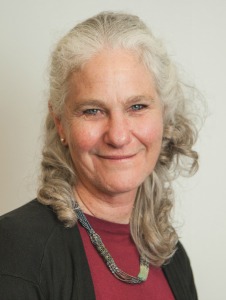
Physiotherapist, researcher and Dean of the School of Physiotherapy
Research and knowledge transfer are key to activities at the School of Physiotherapy.
Professor Leigh Hale's applied research investigates approaches which prove most effective in offering support and agency to those who want to be well.
The cultural context physiotherapists operate within varies yet current demands on healthcare systems and personnel have much in common.
Research staff at the Centre for Health and Rehabilitation Research - or CHARR - at the School, reflect the international texture of the profession, engaging in collaborative research which amplifies and enhances synergies within healthcare systems to improve outcomes for patients and support workers everywhere.
Cultural connections
Born in Cape Town South Africa, Leigh grew up in a close-knit agricultural community in neighbouring Zimbabwe. She recalls her small country school, the freedom of riding her horse, and family picnics at the riverside to the loud honking of a hippopotamus.
The education system in Zimbabwe ran on very structured Eurocentric lines. Handed a list of appropriate careers one day at school, Leigh would select the only word she did not understand, but which stood out from the rest. Physiotherapy.
Some years later with a B.Sc in Physiotherapy from the University of Cape Town in hand, she set off to work in Europe and the UK.
As a therapist back in Johannesburg Leigh noted disconnections between physiotherapy theory and practice. She enjoyed the human dimension of clinical work but wondered if academia might better suit raising a young family, and allow time for research.
Applied research
Moving on from clinical practice Leigh chose further postgraduate studies at the University of the Witwatersrand. One of their teaching hospitals is Chris Hani Baragwanath Hospital, a large and established institution located in Soweto, south of Johannesburg.
Leigh's qualitative research in Soweto revealed high rates of hypertension, a known precursor of stroke. Societal factors including impoverishment, food insecurity and lack of access to exercise facilities increase the risk of stroke events.
Postgraduate studies proved worthy but, Leigh tells us that the teaching of stroke rehab lacked relevance to her actual work. Texts and methodologies which came from the US and UK were often inappropriate in South Africa. At this point Leigh's clinical experience and research interests converged as she began to ask what tools and resources physiotherapists can provide that people might use to keep themselves well.
Listening and learning
After arriving in New Zealand in 2000, Leigh focused her research on neurorehabilitation for MS and Parkinsons, extended her previous work with stroke, and broadened investigations into lifelong conditions such as diabetes and dementia.
She emphasises that physiotherapists, including those working in the disability sector must listen to and learn from each patient's individual experience. Every person deserves a life of dignity and, with assistance, more of us can be empowered to lead purposeful and connected lives.
At its heart, applied research at the School of Physiotherapy led by Professor Leigh Hale means purposeful access to resourcing, support with self-management and the reinforcement of a sense of agency for each patient throughout their lifespan.
Professor Leigh Hale holds a BSc (Physio) from the University of Cape Town, a MSc and PhD from the University of the Witwatersrand, and is a Fellow of the New Zealand College of Physiotherapy
Useful links
Find details of research activities at the School of Physiotherapy
Profile
Selected research examples
Regular participation in physical activity (PA) is particularly important for health, well-being and longevity of people living with chronic disability.
Behavioural intervention technologies for self-management of persistent pain (Pain BITS). Co-creation of digital resources by and for people living with persistent pain.
Support workers and caregivers in the aged care sector
Support workers and caregivers are critical to support people with cognitive decline in accessing health services and facilitating the uptake of interventions.
Hauā Mana Māori: Living unique and enriched lives
This study set out to explore how accessible health and disability organisations are for Māori living with a disability and their whānau in Southland - Murihiku.
